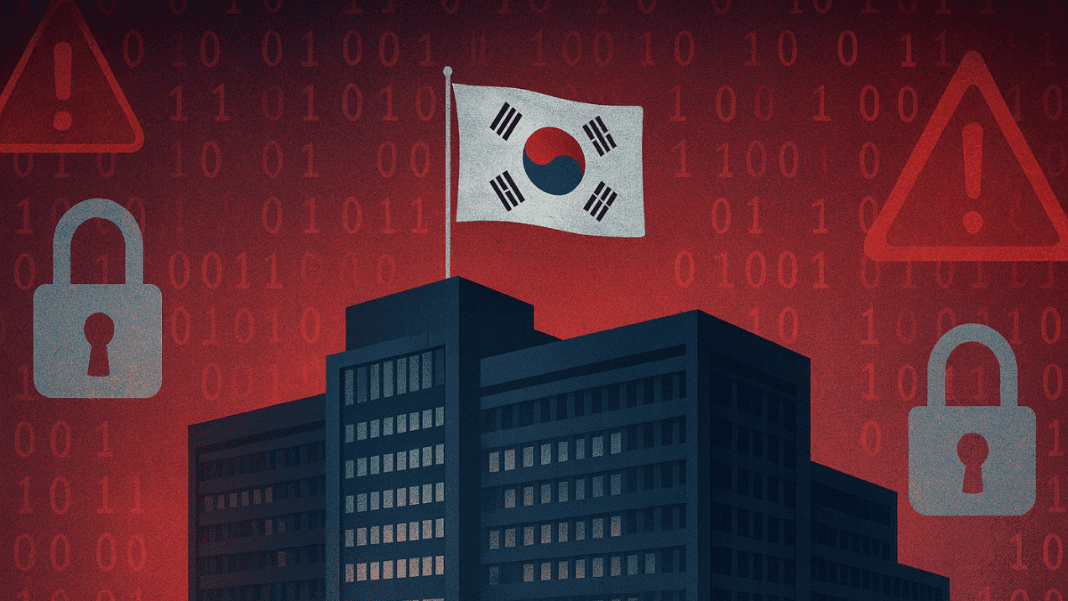Cyberattacks on South Korea’s state agencies have reached alarming levels this year. The Ministry of Health and Welfare reported that it was targeted more than 56,000 times in just the first eight months of 2025. This is nearly 200 times higher than the figure recorded last year.
Health Ministry Hit by Record Number of Attacks
Official data shows that in 2024 the ministry faced only 338 hacking attempts. In 2023, the number stood at 211, and in 2022 it was 1,144. The sudden jump to over 56,000 attacks in 2025 shows how sharply the threat has grown in a very short time.
When all affiliated agencies of the Health Ministry are included, the total number of attacks rises even more. By August this year, there were more than 552,000 cyberattacks. In 2022, the number was 219,807. This indicates more than double the attempts in just three years.
One of the most alarming targets has been the Korea Social Security Information Service, which holds sensitive records about citizens’ income and assets. This agency faced more than 68,000 hacking attempts in the first eight months of this year. In 2022, the number of attempts was just over 3,300, meaning attacks increased nearly 20-fold. Officials have warned that such attempts could cause serious damage if the data is exposed.
Rising Threat of Data Breaches
The surge in attacks is not only about numbers. It also raises the risk of large-scale data theft. A separate report revealed that state-affiliated bodies lost almost 4 million pieces of personal information last year. By July this year, another 912,000 pieces of information had already been stolen.
These leaks can involve names, contact details, and other personal records. Many experts warn that the real figure could be even higher, since not all cases are detected or made public. Once this data is stolen, it can spread quickly and be misused for fraud, scams, or other illegal activities.
How Cyber Attacks on Industrial Control Systems Can Endanger Lives ?
Investigations suggest that some of these cyberattacks have links to well-known hacker groups. One security report claimed that a large amount of stolen data was found on a hacker’s computer. This data included files from key government branches such as the Ministry of National Defense, the Ministry of Foreign Affairs, and the Supreme Prosecutors’ Office.
Another area of concern is the Onnara Service, which is a digital network that connects government branches for administrative duties. It was reported that hackers may have gained access to this system, though the claim has not been confirmed by local authorities. What has been confirmed is that a private contractor responsible for managing the system was hacked last year. The breach has since been linked to attackers from abroad.
Cyberattacks Spread to Civilian Sector
The wave of cyberattacks has not been limited to government agencies. Several large companies in the private sector have also been hit. Mobile carriers and credit card firms have reported major data breaches. These incidents sparked anger among customers and led to nationwide concerns about data safety.
Russian hackers hit 20 South Korean equity funds, dump tax files and investor data online
Adding to the difficulties, public services faced delays after a fire broke out at the National Information Resources Service, where key government servers are housed. The fire, believed to have been caused by a battery, disrupted the network service and added to the challenges already created by cyberattacks. An investigation is still underway to determine the exact cause of the fire.
The combination of hacking incidents, data leaks, and system breakdowns highlights how fragile critical networks have become. Both government and private institutions are now facing growing pressure to protect the sensitive information of millions of people.
